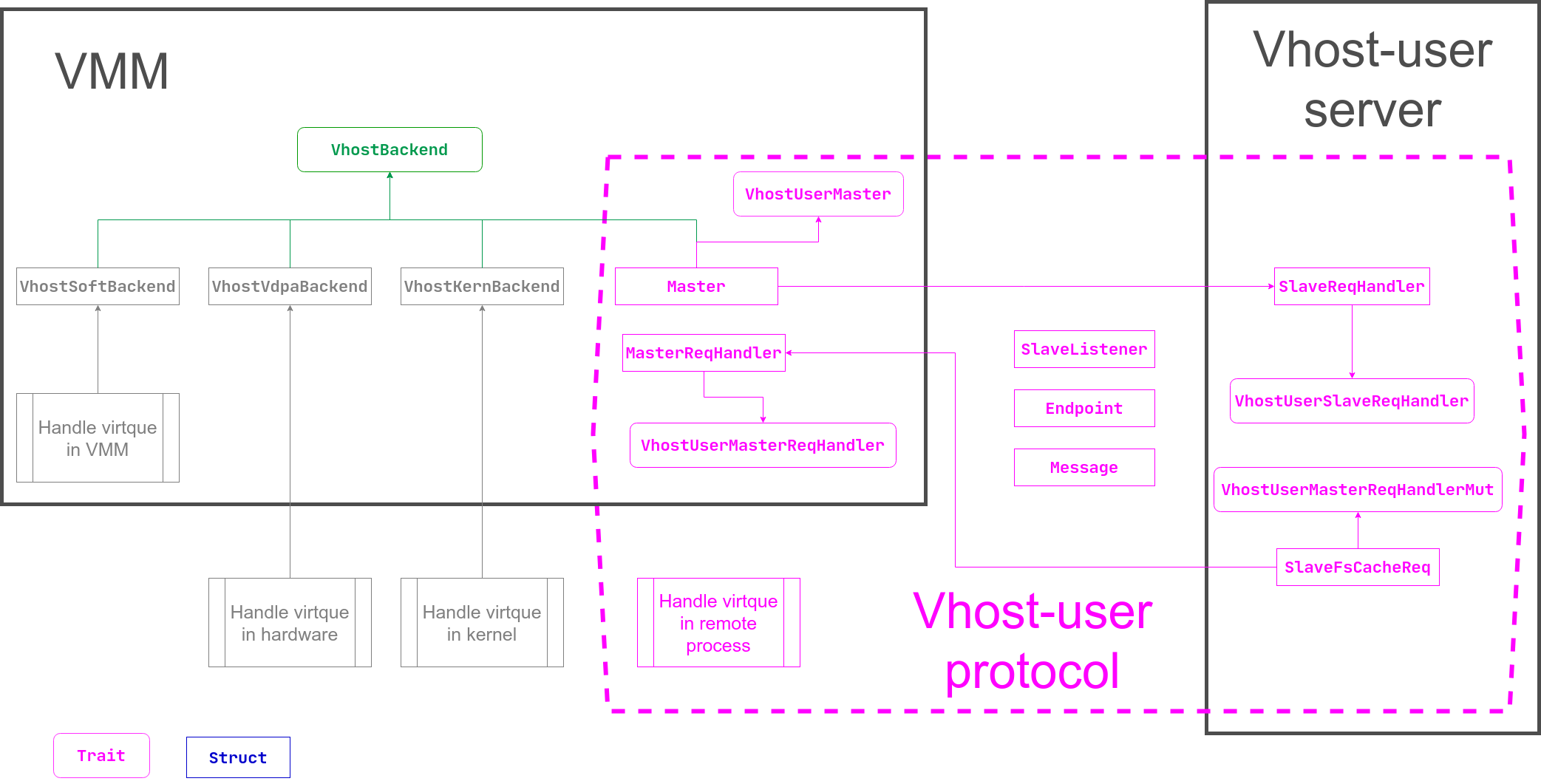mirror of
https://chromium.googlesource.com/crosvm/crosvm
synced 2025-02-11 04:26:38 +00:00
BUG=none TEST=build Change-Id: I3f031c9d6488c9380fd328182d8f0ef00bad0c68 Reviewed-on: https://chromium-review.googlesource.com/c/chromiumos/platform/crosvm/+/3474158 Reviewed-by: Alexandre Courbot <acourbot@chromium.org> Tested-by: kokoro <noreply+kokoro@google.com> Commit-Queue: Keiichi Watanabe <keiichiw@chromium.org> |
||
|---|---|---|
| .. | ||
| .buildkite | ||
| .cargo | ||
| .github | ||
| docs | ||
| src | ||
| .gitignore | ||
| .gitmodules | ||
| Cargo.toml | ||
| CODEOWNERS | ||
| LICENSE | ||
| LICENSE-BSD-3-Clause | ||
| LICENSE-BSD-Chromium | ||
| README.md | ||
vHost
A pure rust library for vhost-user. This is a fork of rust-vmm/vhost.
The vhost-user protocol aims to implement vhost backend drivers in userspace, which complements the ioctl interface used to control the vhost implementation in the Linux kernel. It implements the control plane needed to establish virtqueue sharing with a user space process on the same host. It uses communication over a Unix domain socket to share file descriptors in the ancillary data of the message.
The protocol defines two sides of the communication, master and slave. Master is the application that shares its virtqueues, slave is the consumer of the virtqueues. Master and slave can be either a client (i.e. connecting) or server (listening) in the socket communication.
